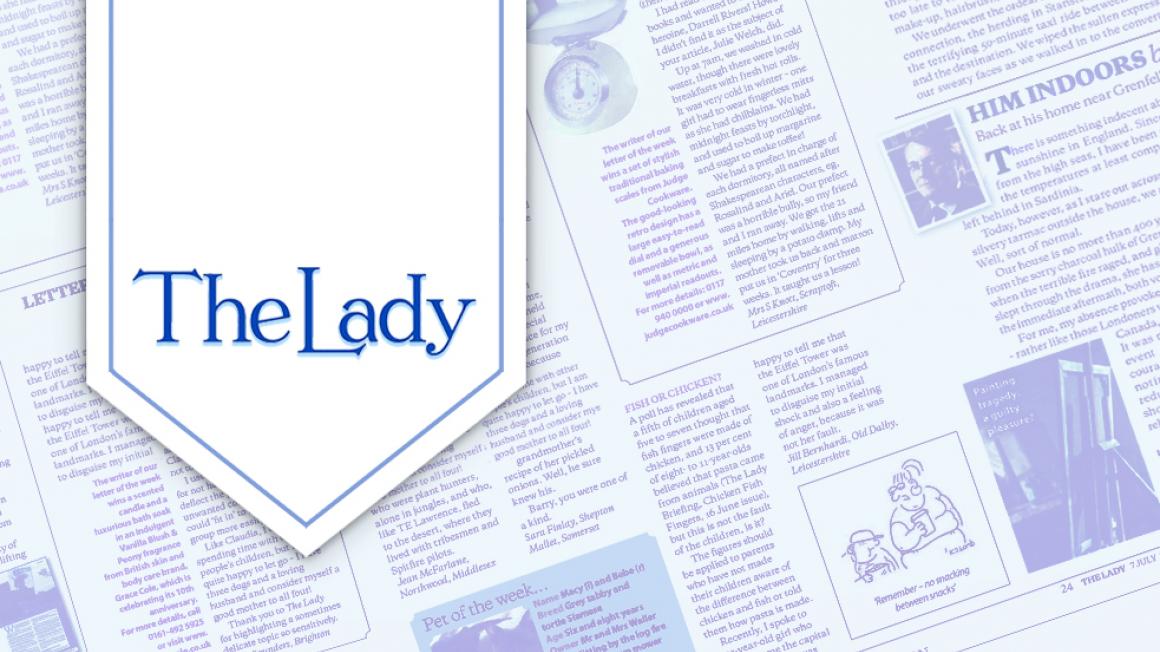The Lady Guide to Modern Manners: 3 October
I had a real crisis of etiquette recently when a friend dropped in unexpectedly. I’d more or less finished vacuuming the bedroom for a bona-fide house guest (as it were) who was due in 40 minutes, so that wasn’t a problem. But as I was getting the surprise visitor a cup of tea, the landline rang. The phone that never rings. Isn’t it typical? I would have ignored the call, but my drop-in insisted I answer. Of course the conversation dragged on a bit and afterwards there was flak: ‘I suppose because I’m uninvited, I’m bottom of the list,’ my friend wailed.
Virginia Brackenbury, Dorchester
Dear Virginia,
I do sympathise. If it’s any consolation, I have a private theory, yet to be explored by science, that certain people cause chaos wherever they go. Could it be that your drop-in pal is one of them? Somehow she made that phone ring and knew to loom just when you were agitated after vacuuming and expecting another guest. I wouldn’t be surprised if you told me that she put the kettle on herself while remarking that there was surely time for a cup of tea.
Even so, dropping in is a delightful practice in moderation but really one should phone first, and avoid mealtimes. I’ve always encouraged those dropped-in on to embrace the opportunity and you evidently felt the same, since you admitted the person despite having another visitor on the horizon. Even if one were about to leave for a six-month cruise, one can surely show them one’s collection of umbrellas in the hall. Always be cheerful and delighted to see the unexpected visitor, although I do recognise that some droppers-in are rather persistent. If they’ve not come far, it’s easier to propel them back to from whence they came.
A friend of mine happened to be in the neighbourhood of an acquaintance not seen for years and thought to go and have a look at the outside of her house. She wasn’t even dropping in. Rather embarrassing, though, when the woman appeared and invited her to Glyndebourne. Although, in the end, a benefit.
I do agree that it’s typical that your phone went in the midst of all this. But perhaps your first instinct was right. Visitors often do encourage one to answer, probably out of politeness. You feel that the call can be curtailed, that it will be one less thing to worry about later on, but then the caller has a story, has just had an operation or was nearly run over – it would be cruel to shake them off. So really it’s best to ignore the phone, however hard it is because some of them have a most demanding way of ringing and often your visitor says, more than once, ‘Are you sure you don’t want to answer it?’
Please send your questions to thomas.blaikie@lady.co.uk or write to him at The Lady, 39-40 Bedford Street, London WC2E 9ER
WHAT TO DO… IF SOMEONE FALLS ILL
Depressing reading from St John Ambulance: 34% of those interviewed for a survey said they would be discouraged from helping a stranger requiring first aid for fear of being sued. This outcome is backed up by the National Council for Voluntary Organisations.I am reminded of the whole debate about intervening generally – when someone drops litter, cycles on the pavement, spits in public, etc. Do we, as a nation, shy away from it? ‘Best not to get involved,’ we say. In one respect it is admirable that we don’t like to tell other people what to do, but on the other hand, it’s rather pointless if the rest of the time we bicker without end about how appallingly rude everyone is nowadays compared to years ago in the golden olden days and so on. Often people don’t intervene when it would be perfectly safe to do so and don’t support others who do.
But to get back to first aid: look, you won’t be sued if you try to help a stranger in need. Or it’s very unlikely. St John Ambulance does want us to brush up on our first aid, though.



